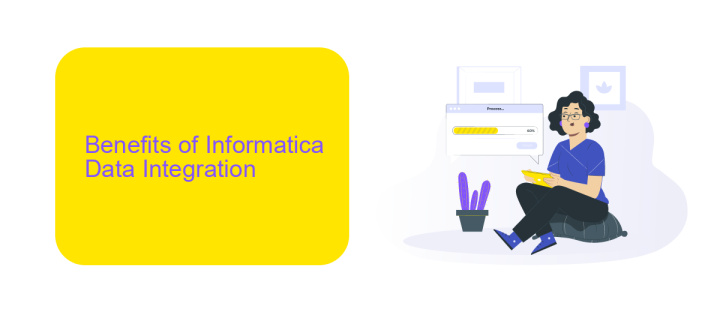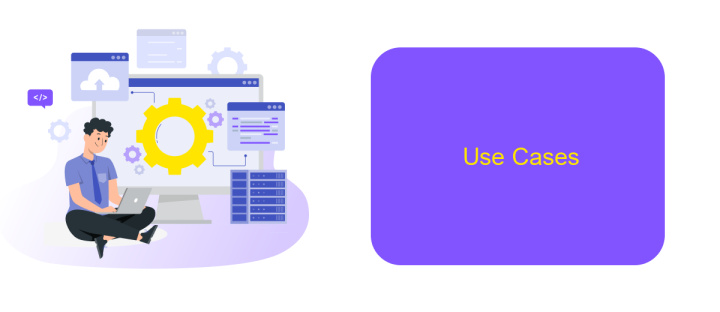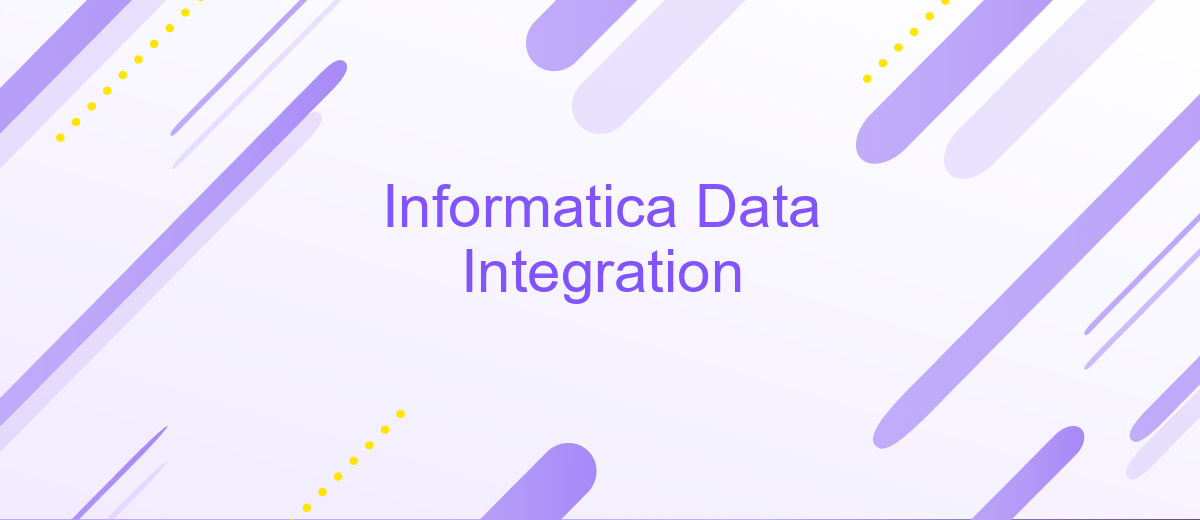Informatica Data Integration
Informatica Data Integration is a powerful tool that enables organizations to seamlessly connect, integrate, and manage data from diverse sources. By providing a unified platform for data integration, it ensures data accuracy, consistency, and accessibility. This article explores the key features, benefits, and practical applications of Informatica Data Integration, demonstrating how it can transform data management strategies and drive business success.
Introduction
Informatica Data Integration is a robust solution designed to streamline and automate data workflows across various systems and applications. It empowers organizations to harness the full potential of their data by providing seamless integration capabilities, ensuring data consistency, and enhancing overall operational efficiency.
- Automated data workflows
- Seamless integration capabilities
- Enhanced data consistency
- Improved operational efficiency
One of the key aspects of successful data integration is the ability to connect disparate systems effortlessly. Tools like ApiX-Drive play a significant role in this process by offering a user-friendly platform for setting up integrations without the need for extensive coding. By leveraging such services, businesses can ensure that their data flows smoothly between systems, leading to better decision-making and optimized performance.
Benefits of Informatica Data Integration

Informatica Data Integration offers numerous benefits, significantly enhancing data management and business operations. One of the primary advantages is its ability to seamlessly integrate data from diverse sources, ensuring a unified and consistent view of information across the organization. This integration facilitates better decision-making by providing accurate, real-time data insights. Additionally, Informatica's robust data transformation capabilities allow enterprises to cleanse, standardize, and enrich data, thereby improving data quality and reliability.
Furthermore, Informatica Data Integration supports scalability and flexibility, accommodating the growing data needs of businesses. Its user-friendly interface and pre-built connectors simplify the integration process, reducing the need for extensive coding and technical expertise. For organizations seeking to streamline their data integration efforts, services like ApiX-Drive can be invaluable. ApiX-Drive automates the integration process, connecting various applications and data sources effortlessly. This not only saves time but also minimizes the risk of errors, enabling businesses to focus on their core activities and strategic goals.
Key Features

Informatica Data Integration offers a robust suite of features designed to streamline data management and integration processes. This platform is engineered to handle complex data environments, ensuring seamless data flow across various systems and applications.
- Comprehensive Connectivity: Connects to a wide range of data sources including databases, cloud services, and on-premises systems.
- Advanced Data Transformation: Provides powerful tools for data cleansing, enrichment, and transformation to ensure high-quality data.
- Real-Time Integration: Supports real-time data integration, enabling timely and accurate data delivery for critical business operations.
- Scalability: Easily scales to handle large volumes of data, making it suitable for enterprises of all sizes.
- API Integration: Utilizes services like ApiX-Drive to simplify the process of setting up and managing API-based integrations, enhancing flexibility and reducing development time.
With these key features, Informatica Data Integration empowers organizations to efficiently manage their data ecosystems. The platform's ability to integrate diverse data sources and deliver real-time insights ensures that businesses can make informed decisions swiftly and accurately.
Use Cases

Informatica Data Integration is a powerful tool designed to streamline data management processes across various industries. Its robust capabilities facilitate seamless data integration, transformation, and management, ensuring that organizations can efficiently handle their data needs.
One of the key use cases for Informatica Data Integration is in the realm of business intelligence. By integrating data from multiple sources, businesses can generate comprehensive reports and analytics, leading to better decision-making. Additionally, it plays a crucial role in data migration projects, allowing companies to transfer data from legacy systems to modern platforms without compromising data integrity.
- Business Intelligence and Analytics
- Data Migration and Modernization
- Customer Data Integration
- Real-time Data Processing
Another significant application is in the integration of cloud-based services. Tools like ApiX-Drive can be employed alongside Informatica to automate and synchronize data flows between various cloud applications, enhancing operational efficiency. This integration ensures that data is always up-to-date and accessible, thereby supporting dynamic business environments.
Conclusion
Informatica Data Integration plays a crucial role in modern data management by enabling seamless connectivity and data flow across diverse systems. It ensures data accuracy, consistency, and accessibility, which are vital for informed decision-making and operational efficiency. By leveraging advanced features such as data transformation, cleansing, and real-time integration, organizations can harness the full potential of their data assets.
Moreover, integrating services like ApiX-Drive can further enhance the capabilities of Informatica Data Integration. ApiX-Drive simplifies the process of connecting various applications and automating data workflows, reducing the need for manual intervention and minimizing errors. This synergy between Informatica and ApiX-Drive empowers businesses to streamline their data integration processes, ensuring that data is always up-to-date and readily available. As a result, organizations can achieve greater agility, efficiency, and competitive advantage in today's data-driven landscape.
FAQ
What is Informatica Data Integration?
How do I connect Informatica to different data sources?
What are the main components of Informatica PowerCenter?
How can I automate data integration tasks in Informatica?
What is the role of data quality in Informatica Data Integration?
Routine tasks take a lot of time from employees? Do they burn out, do not have enough working day for the main duties and important things? Do you understand that the only way out of this situation in modern realities is automation? Try Apix-Drive for free and make sure that the online connector in 5 minutes of setting up integration will remove a significant part of the routine from your life and free up time for you and your employees.

